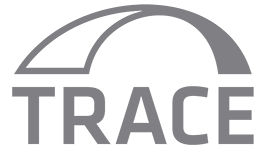The Panama Papers have already resulted in fallout for a variety of organizations and high-ranking politicians. As investigators and prosecutors delve further into the cache of leaked documents and governments begin instituting financial reforms, the maritime industry will almost certainly not be immune from the scandal’s effects.
Here are three ways the Panama Papers could impact the maritime industry:
- Shine Light on the Industry’s Substandard Anti-Bribery Practices: Unlike the important strides the maritime industry has made to reduce the operational risk of contracting vessels, its response to effectively managing corruption and compliance risks has been relatively poor. For example, port procedures are often opaque or are poorly enforced, creating opportunities for bribe demands and inappropriate payments. In relation to the Panama Papers, the maritime industry is particularly vulnerable on issues regarding beneficial ownership and compliance with anti-money laundering (AML) and sanctions legislation. The renewed focus on offshore jurisdictions and calls for increased transparency could thrust the industry’s deficiencies into the spotlight.
- Reduce the Industry’s Use of Third Parties with Unknown Beneficial Owners: About 90 percent of world trade is transported by the maritime industry, often by third parties. One sector of the industry, the shipowning community, is notorious for using off-shore jurisdictions to register vessels. Though this practice is not illegal, it does create huge compliance challenges for members of the global chartering community, many of whom just do not know who the beneficial owners of strategically important third parties are. However, governments are beginning to take steps in response to the scandal to increase disclosure requirements, such as the executive action recently announced in the U.S. by President Obama, which should reduce the number of third parties who do not make beneficial ownership information available.
- Segment the Industry into Good Owners & Operators and Bad: As a result of the international response to the scandal, it is very likely that the shipping industry will become segmented between good owners and operators – those that have robust anti-bribery compliance programs and are transparent – and those that do and are not. Those that choose the latter should beware. Enforcement agencies are better funded and wiser than ever before. They are also better informed by tip-offs, as so well illustrated by the Panama Papers.
The world’s attitude toward corruption has changed. As a result, the maritime industry must address corruption, sanctions and AML risks in the same manner that it has done over the last 20 years in relation to vessel safety and operational risk.
_____
 TRACE International and TRACE Incorporated are two distinct entities with a common mission to advance commercial transparency worldwide by supporting the compliance efforts of multinational companies and their third-party intermediaries. TRACE International is a nonprofit business association that pools resources to provide members with anti-bribery compliance support while TRACE Incorporated offers both members and non-members customizable risk-based due diligence, anti-bribery training and advisory services. Working alongside one another, TRACE International and TRACE Incorporated offer an end-to-end, cost-effective and innovative solution for anti-bribery and third-party compliance. For more information, visit www.TRACEinternational.org.
TRACE International and TRACE Incorporated are two distinct entities with a common mission to advance commercial transparency worldwide by supporting the compliance efforts of multinational companies and their third-party intermediaries. TRACE International is a nonprofit business association that pools resources to provide members with anti-bribery compliance support while TRACE Incorporated offers both members and non-members customizable risk-based due diligence, anti-bribery training and advisory services. Working alongside one another, TRACE International and TRACE Incorporated offer an end-to-end, cost-effective and innovative solution for anti-bribery and third-party compliance. For more information, visit www.TRACEinternational.org.
















